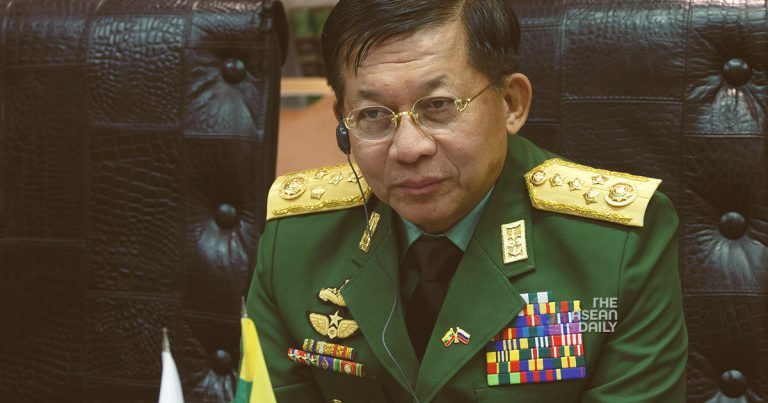13-1-2024 (YANGON) Myanmar’s military dictator, Min Aung Hlaing, is confronting a mounting demand for his resignation from some of his most ardent supporters. In an unexpected turn of events, individuals who were once vocal advocates for the regime are now openly criticizing Hlaing’s leadership and calling for his immediate departure from power.
The criticism leveled against Hlaing stems from allegations of incompetence, self-interest, and a lack of resilience. His supporters argue that under his command, the military, which was once considered invincible, has been reduced to a state of deep shame and desperation. The recent surrender of nearly 2,400 soldiers, including high-ranking officers, to an alliance of ethnic armies and resistance groups has further intensified the backlash against Hlaing.
One of the regime’s prominent cheerleaders, Maung Maung, publicly disavowed Hlaing, announcing on his YouTube channel that “Three years is enough for U Min Aung Hlaing.” Maung Maung criticized Hlaing for failing to demonstrate any competence during his tenure, attributing the country’s historic shame and economic recession to his leadership. He called for Hlaing’s immediate resignation to uphold accountability.
Following Maung Maung’s statement, other regime supporters echoed the call for Hlaing’s resignation. Many of them point to the recent debacle in Laukkai, the capital of Kokang, where the military lost its largest command center and surrendered thousands of weapons, ammunition, and armed vehicles to the resistance. Regime booster Kyaw Myo Min expressed his deep disappointment, stating that they were “inconsolable by the surrender of more than 2,000 troops and over 1,000 of their family members.” He further criticized a meeting between Hlaing and representatives of junta-approved political parties, claiming it failed to address the fall of Laukkai to ethnic armies and resistance groups.
Critics argue that Hlaing’s leadership has been marked by a lack of decisiveness in the face of the escalating nationwide rebellion. While he has resorted to brutal tactics to maintain his grip on power, including the killing of thousands of civilians, his inability to effectively govern and address the growing resistance has undermined his credibility. It has become increasingly evident that Senior General Min Aung Hlaing lacks the qualifications and leadership abilities necessary to steer the country forward.
Even Moe Hein, a former pro-democracy advocate turned regime supporter, has joined the chorus of voices calling for Hlaing’s resignation. Witnessing regime troops surrendering, Hein urged the top brass to exit politics. He emphasized that military leaders should not burden soldiers who are already overwhelmed with their military and family duties.
The regime’s top leaders, comfortably ensconced in heavily guarded compounds, have faced criticism for their detachment from the realities faced by frontline soldiers. While they enjoy their privileges, soldiers continue to be exposed to the danger of resistance drone attacks. The regime’s cheerleaders, previously self-serving, are now turning against it.
The growing dissent against Hlaing coincides with significant losses suffered by regime forces, including the loss of control over vital trade routes with Thailand, China, and India. Troops and generals alike are surrendering instead of engaging in combat. Maung Maung aptly summarized the prevailing sentiment, stating, “The military has lost dignity, and its soldiers on the ground are desperate.” Consequently, calls for Hlaing’s replacement have become undeniable.




